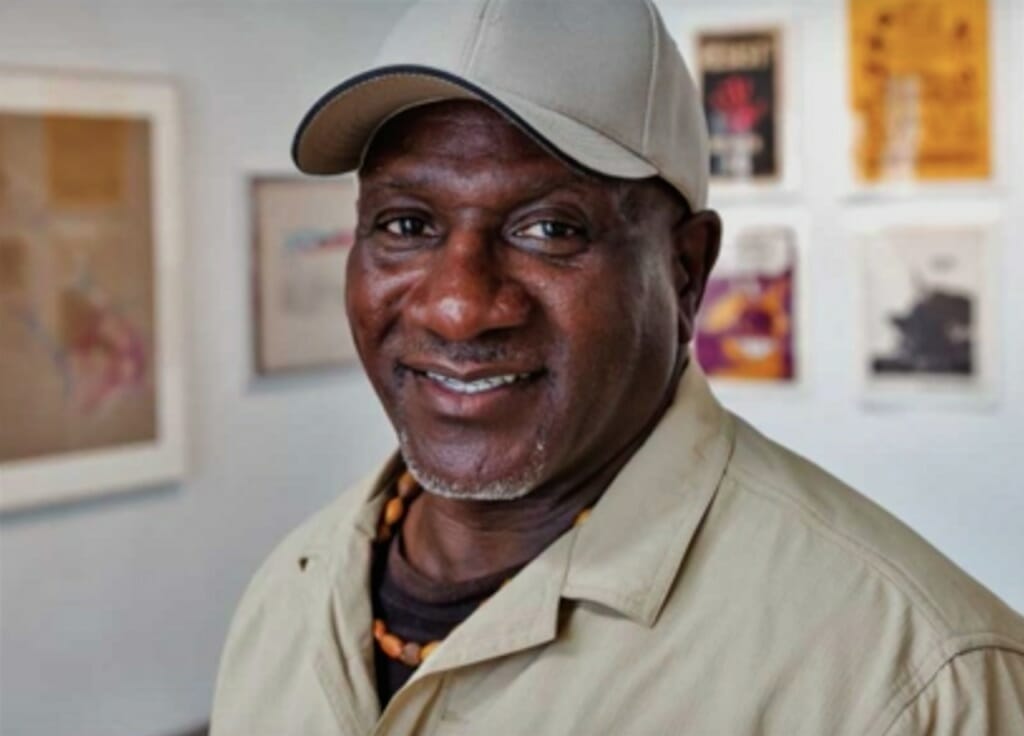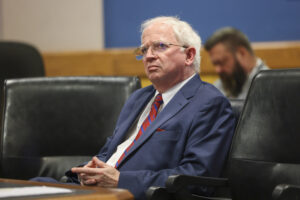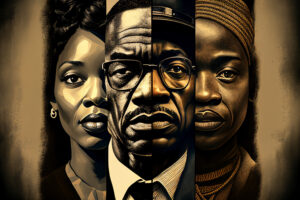How a Death Row Inmate Made Injustice Pay Off
After being wrongfully convicted of murder and spending 41 years at Angola prison in Louisiana, Gary Tyler has become a community leader in the struggle for justice. Gary Tyler. (Ming-Wei Fasquelle / YouTube)
Gary Tyler. (Ming-Wei Fasquelle / YouTube)
Imagine you are charged with a crime you didn’t commit, then wrongfully convicted of first-degree murder. Now, imagine you get sentenced to death by electric chair, sent to one of the most notorious prisons in the United States, and assigned an execution date.
That’s what happened to Gary Tyler. In 1974, Tyler was arrested for disturbing the peace as a 16-year-old sophomore at Destrehan High School in St. Charles Parish, La., after a racial altercation involving 200 white students and a school bus filled with black students (including Tyler). A 13-year-old white student was shot and later died. Tyler was named as the shooting suspect, even though he claimed his innocence and evidence suggested he was framed.
“They kept asking me questions about what happened on the bus,” Tyler told the Pasadena Weekly about being in police custody. “When I said I didn’t know anything, six or seven police officers brutally beat me for two to three hours in the booking room at the substation.”
An all-white jury found Tyler guilty of murder. He entered the Louisiana State Penitentiary, or Angola, at 17, the youngest person on death row.
“Angola was the bloodiest, most infamous prison in the nation,” Tyler said. “It was a place of turmoil where prisoners were killing each other and committing suicide. I saw horrible things in Angola—inmates being set on fire or stabbed with homemade spears. I saw inmates who were doused with acid by other inmates. Some prisoners even got beaten to death by guards.”
A group of inmates protected Tyler.
“They saw a little kid who was all alone,” Tyler explained. “Many of them were uncles and fathers—and they stepped up as responsible men to make sure that nothing happened to me.”
Tyler’s execution date was May 1, 1976. Before that day arrived, his sentence was commuted to life without parole (until after 20 years) after the Supreme Court ruled in Roberts v. Louisiana that the state’s death penalty was unconstitutional.
Tyler made the best of his injustice, getting a GED, studying graphic arts and printing, attending paralegal school, mentoring other inmates and volunteering in the prison’s hospice care facility for 17 years.
During his time in prison, Tyler helped transform the culture of violence at Angola. As the president of the drama club, he directed a passion play, “The Life of Jesus Christ,” featuring other inmates as cast members. This project became the basis of the documentary “Cast the First Stone.”
Tyler recalled the experience during an interview with Truthdig Editor in Chief Robert Scheer:
Of course, I was able to recruit people from all walks of life in the prison. Also, that we’re talking about some people that had disciplinary problems and I knew these guys. I knew that giving them a chance, an opportunity, I could help transform them. I like that I had opportunity to interview and audition, you understand, these guys, because I opened it up to the prison population and I was getting, if you consider the worst of the worst, and to hear these guys say, “Give me chance. Let me prove myself.” It’s like people asking society, “Give me a second chance.” So, I heard their cries and I gave them that chance. I found them to be the most committed and dedicated actors that I had in the production.
Tyler’s legal case became known worldwide as lawyers and human rights activists fought for his release from prison. In 2016, the St. Charles Parish district attorney’s office in Louisiana agreed to overturn Tyler’s murder conviction if he entered a guilty plea for manslaughter. He did and received the maximum sentence of 21 years. Since he already had served almost 42 years, Tyler was released from Angola on April 29, 2016, at the age of 57.
He now lives in Pasadena, Calif., and has become a community leader.
Tyler has spoken out in support of Proposition 62 to end the death penalty in California. He has spoken at events with actor and activist Mike Farrell, former Los Angeles County District Attorney Gil Garcetti and musician Jackson Browne.
Tyler also has lectured at many places: Cal State Northridge, with the Rev. James Lawson; Cal State Long Beach, with actor Danny Trejo and film producer and Anti-Recidivism Coalition (ARC) founder Scott Budnick; USC (five times), Loyola Marymount; Venice Art Garden; UCLA’s Department of African-American Studies; Loyola Law School, Hastings Law School, All Saints’ Episcopal Church in Los Angeles; Scott United Methodist Church in Pasadena; University Methodist Church in Irvine; actor Tim Robbins’ experimental theater, The Actors’ Gang (two times); and the Catholic Biblical Federation (two times).
He is scheduled to go to Wisconsin in September to speak at Viterbo University and the University of Wisconsin-La Crosse.
Still, re-entry after four decades of incarceration has its challenges. Tyler came out of prison with zero dollars and turns 60 on July 10. Although Tyler now works as an outreach and engagement support worker at Safe Place for Youth in Venice, Calif.—helping homeless youth—Social Security requires 40 quarters or 10 years to get the minimum benefits. That means Tyler will be at least 69 years old before he can qualify and collect.
Longtime Los Angeles peace activist Bob Zaugh, who has known and advocated for Tyler since 1989, arranges Tyler’s speaking engagements and has set up a re-entry fund for him.
“Gary had to start from scratch upon leaving Angola prison,” Zaugh wrote in an email. “He had no paid work history, no driver’s license, no savings, had never had an apartment. Even going to Ralphs to shop was an eye-opening experience. He was starting from ground zero, but Gary immediately became a community force.”
Tyler continues to be a positive force. At the beginning of 2018, he spoke at Caltech in Pasadena. The woman who organized the event, Marionne Epalle, an administrator in the engineering and applied science department, is his neighbor. After the talk, they went to the Caltech private dining room for lunch. Mwi Epalle, Marionne’s 15-year-old daughter, joined them, and said she wanted to do a class project with Tyler at the International School of Los Angeles. The project was a video, “My Neighbor, Gary.” When the video was completed, she submitted it to a Robert F. Kennedy Human Rights video contest in partnership with the American Federation of Teachers and Tribeca Film Institute. The competition had more than 800 entries. Her entry won first place.
Each time a man stands up for an ideal, or acts to improve the lot of others, or strikes out against injustice, he sends forth a tiny ripple of hope, and crossing each other from a million different centers of energy and daring those ripples build a current which can sweep down the mightiest walls of oppression and resistance.
Like the America of Robert F. Kennedy’s day before his death in 1968, America today faces some difficult tests. As we question what nation we are and what direction we want to go, we can look to Tyler for some guidance and inspiration in the struggle for justice.
“The life I lived, the life that others lived, what they went through, it exemplifies how an individual can overcome these adversities and these challenges and how they can make a difference in their community.”
If you want to provide financial support as Gary Tyler develops his life and work as an important community leader, give to his Liberty Hill re-entry fund or his GoFundMe birthday page.
Your support matters…Independent journalism is under threat and overshadowed by heavily funded mainstream media.
You can help level the playing field. Become a member.
Your tax-deductible contribution keeps us digging beneath the headlines to give you thought-provoking, investigative reporting and analysis that unearths what's really happening- without compromise.
Give today to support our courageous, independent journalists.






You need to be a supporter to comment.
There are currently no responses to this article.
Be the first to respond.